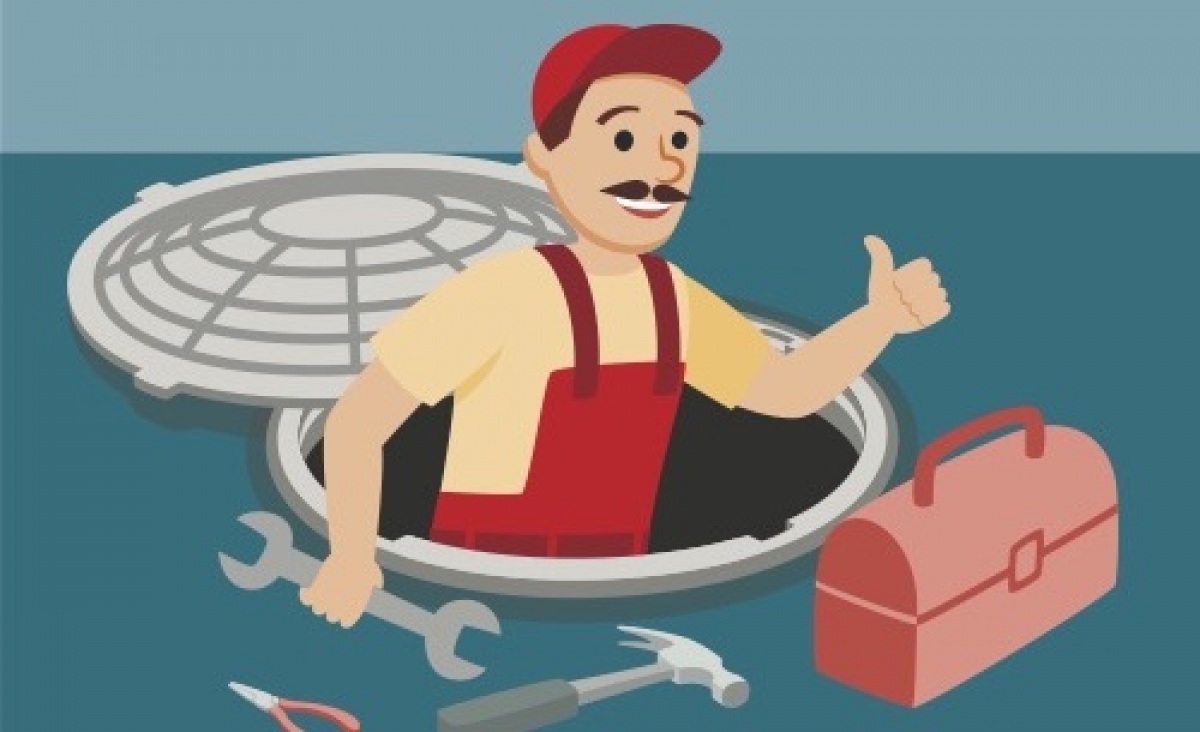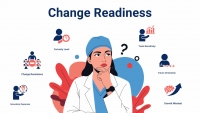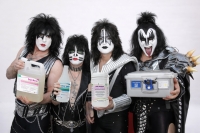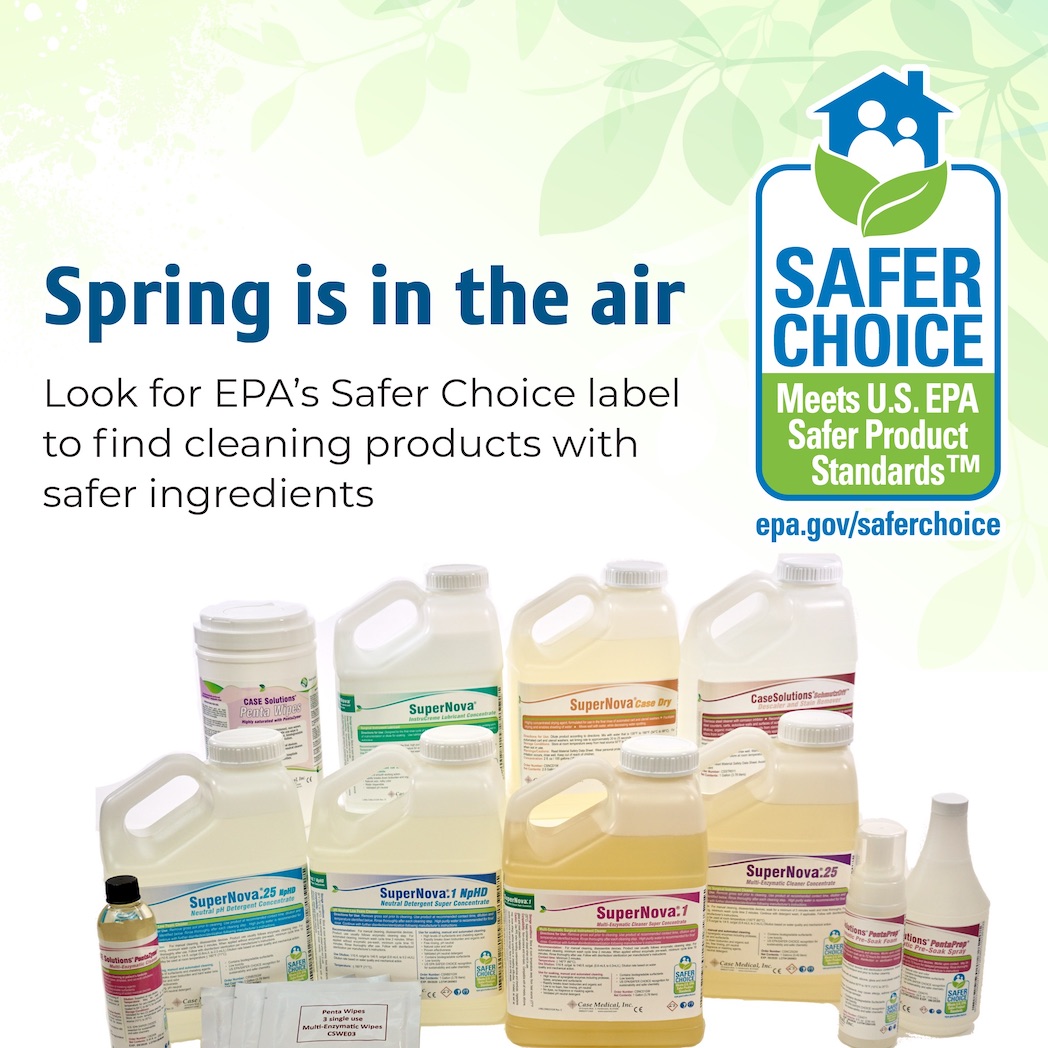
Rethinking Spring Cleaning
This week is formally designated “Spring Cleaning Week” by the U.S. EPA. It is a time for cleaning or organizing your home or enterprise. It typically falls on the first day of spring, the Persian New Year, and coincides with the Jewish practice of throughly cleansing the home for Passover. Look at your inventory of cleaning products to determine what's truly needed and how safe they are to use. Consider reducing the number of SKU's and replacing some of the more caustic chemicals of concern with safer alternatives. Single use wipes have become very popular for cleaning surfaces, wiping baby messes, for personal care, and throughout healthcare facilities for numerous purposes. But as you do your assessment determine how safe they are and whether they can be disposed of in the waste water stream.
Are flushable wipes, flushable?
Recently, we shared with you our experience when our local sewage system was blocked with a “Fatberg”, a collection of wipes, grease and the usual suspects. The term “Fatberg” is slowly but surely, making its way into the vocabulary of the general public. Our town came to the rescue and cleared the blockage of “disposable wipes”, our “Fatberg”, after receiving numerous complaints. A recent report from the Charleston Water System drives the issue home; large masses of wipes were found clogging their wastewater system. Divers with heavy equipment were required to go 80-90 feet deep in raw, wet sewage. In reality, wipes in general are not flushable in most cases even if labeled as such.
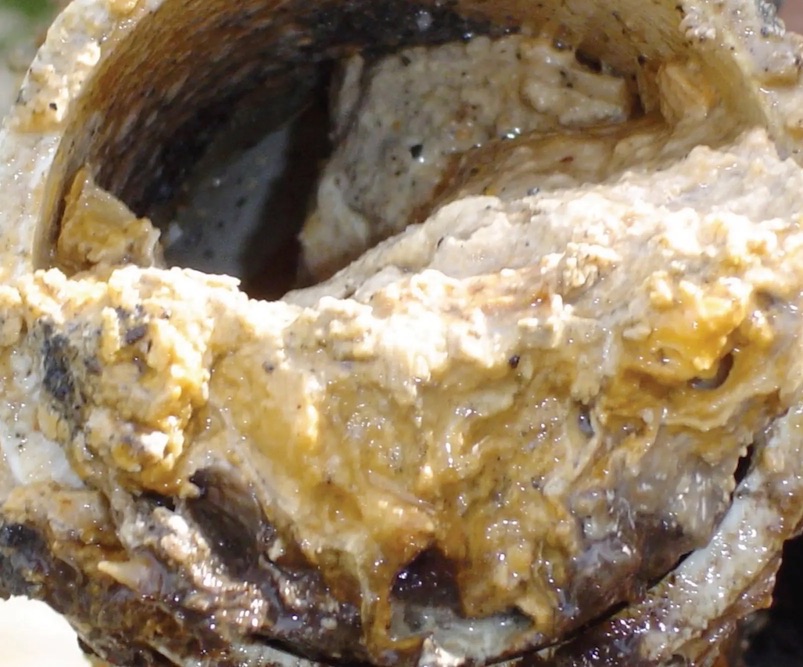
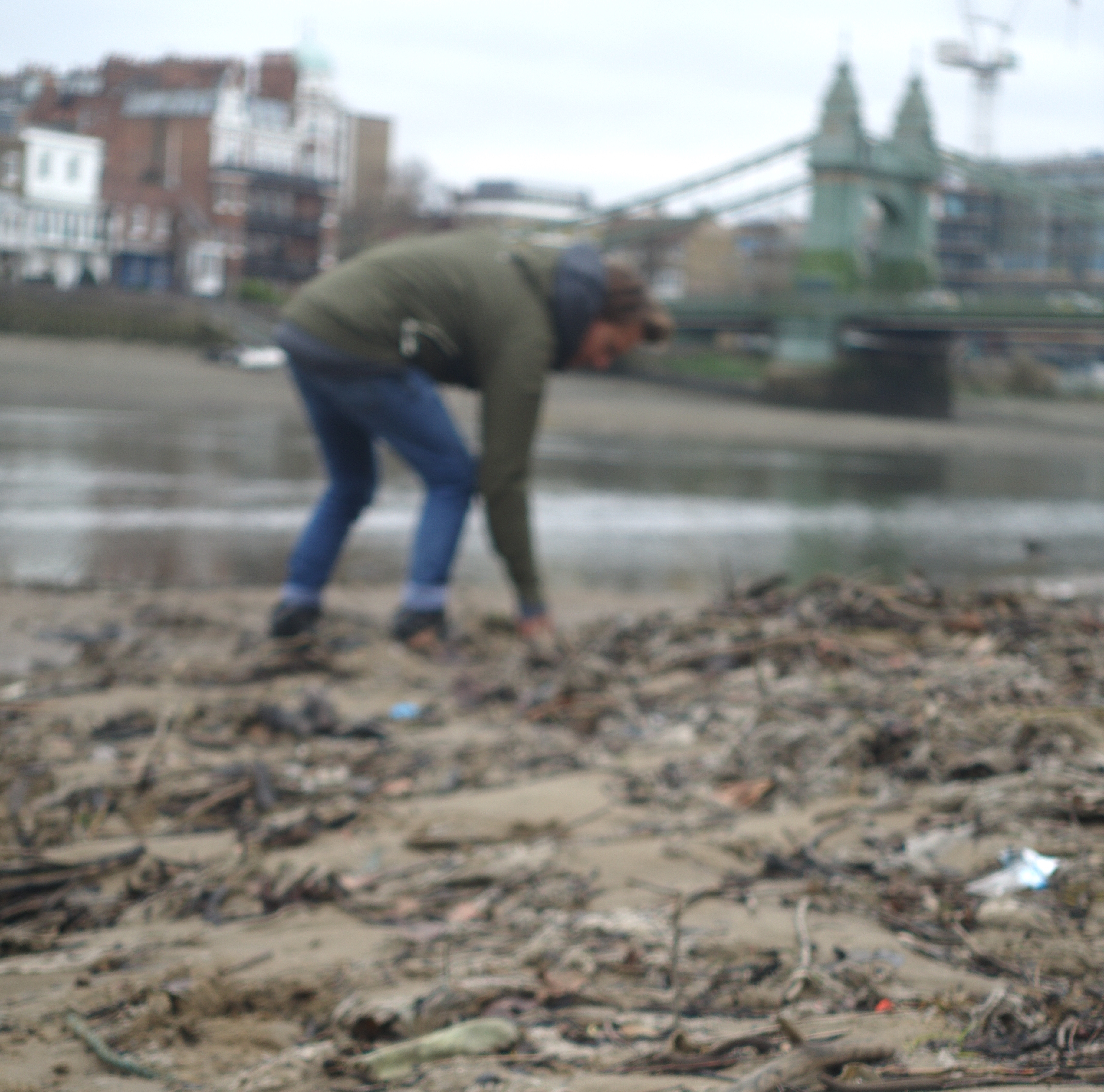
The downside of wet wipes
The future of wet wipes centers around environmentally sustainability issues. The moist towelette, loved by many for their handy performance, ease of use and convenience are assaulting communities around the world with vast sewage blockages, fouled shorelines, and even changing the course of rivers. Yes, it’s true, Britain’s newest islets are made of wet wipes, these nascent islets are not made of granite or limestone, but of agglomerations of wet wipes and mud. Some states right here in the USA are even considering outlawing wipes entirely because of the damage and disruption they cause to vital wastewater infrastructure. Regulatory agencies and Congress are looking into the problem and how these products are labeled.
Building a better wipe
Case Medical’s philosophy as a formulator and wet wipes manufacturer is to be at the forefront of efforts to make our products safer and more sustainable. We are studying advancements in the flushability of wipes, so we can offer truly sustainable ones. It means identifying more biodegradable materials that can withstand wet storage, are free linting, and can be flushed or composted. For the time being, best practices dictate that wipes should be put in the trash and not flushed. You will find our current wipes clearly labeled, "Do Not Flush", until we can develop a truly flushable or compostable alternative.
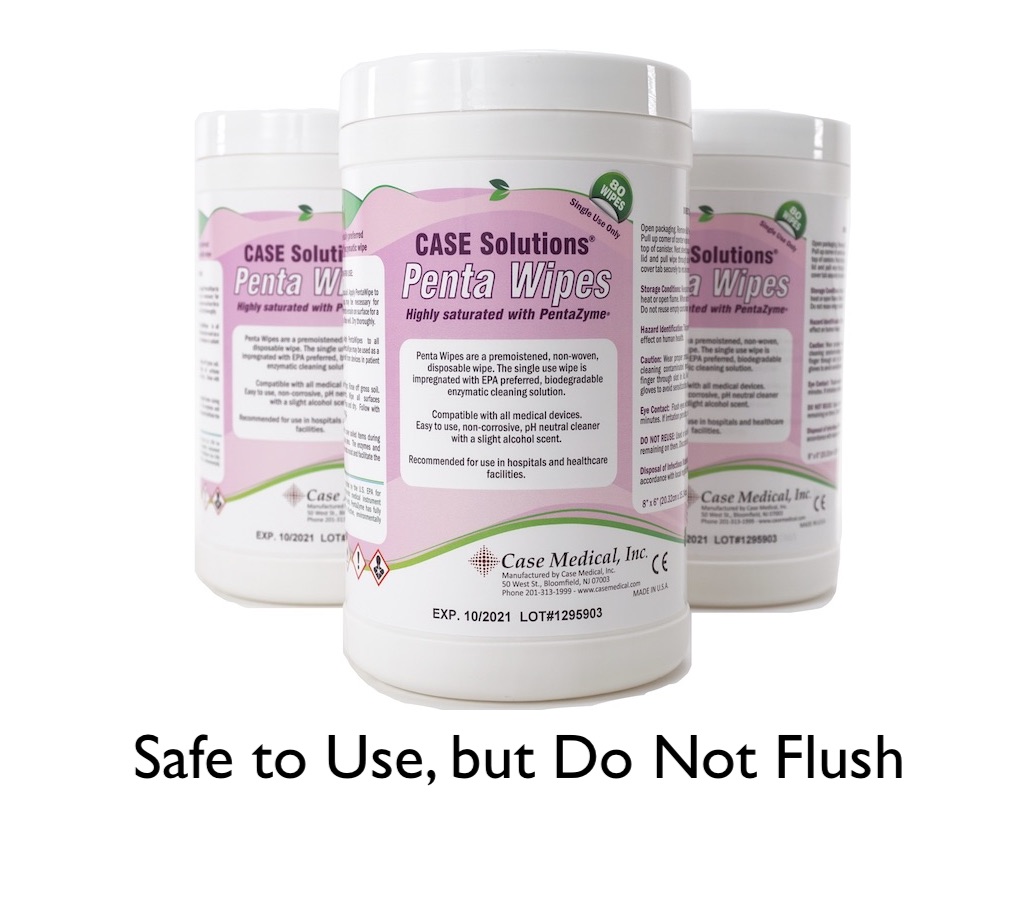
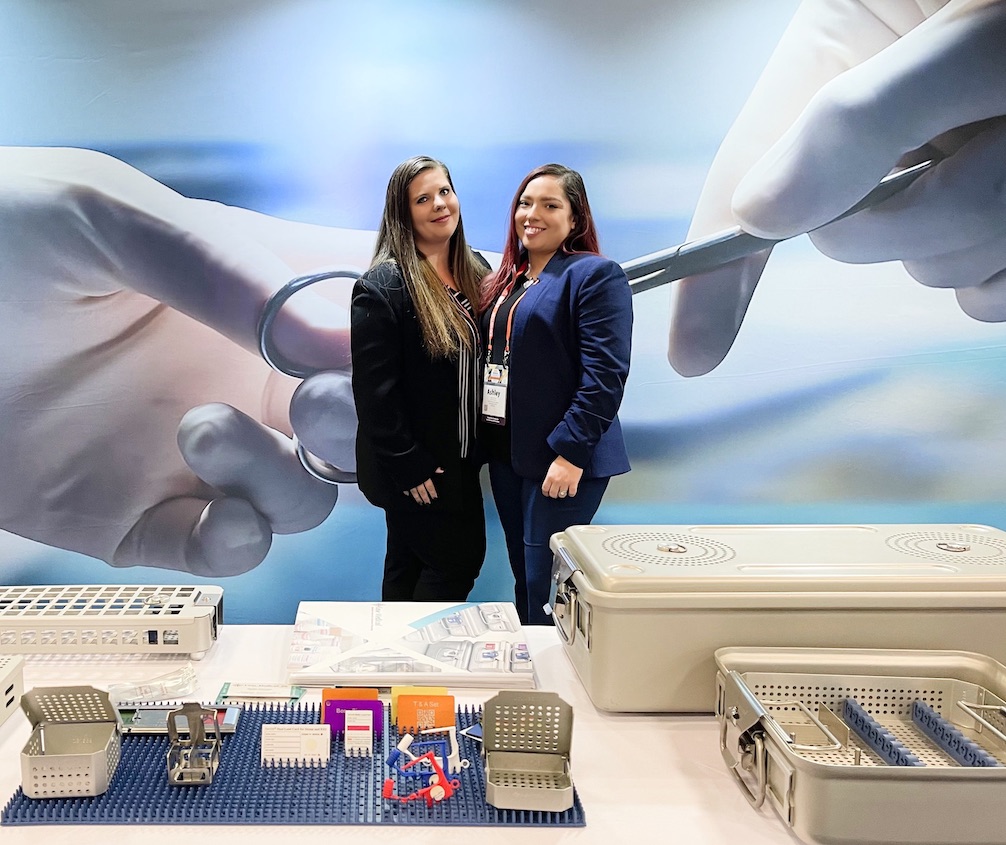
An opportunity to learn more
We will continue to keep you informed about our search for a truly validated, sustainable wipe. It's all about the science. Roll up your sleeves, get involved in some hands-on learning, while you gain CE credits. Join us on Saturday, May 6th at the HSPA Annual Conference, where we will offer a hands-on workshop, “It’s Magic: Now You See It, Now You Don’t” for a close-up look at non-visible soils and a review of various cleaning agents and processes to ensure excellent cleaning results. Then on Sunday May 7th, we’ll share what we learned about the “The Science of Cleaning”. Visit us in the exhibit hall at Booth #847 on Monday afternoon and Tuesday morning to learn more about our reusable containers and U.S. EPA Safer Choice certified cleaners. Case Medical is a U.S. EPA Safer Choice Partner of the Year.
Visit us in Nashville or anytime at www.casemed.com to learn more about our products and how they can help your facility lighten its impact on the environment for the good of us all.
Marcia Frieze and the Case Medical team


